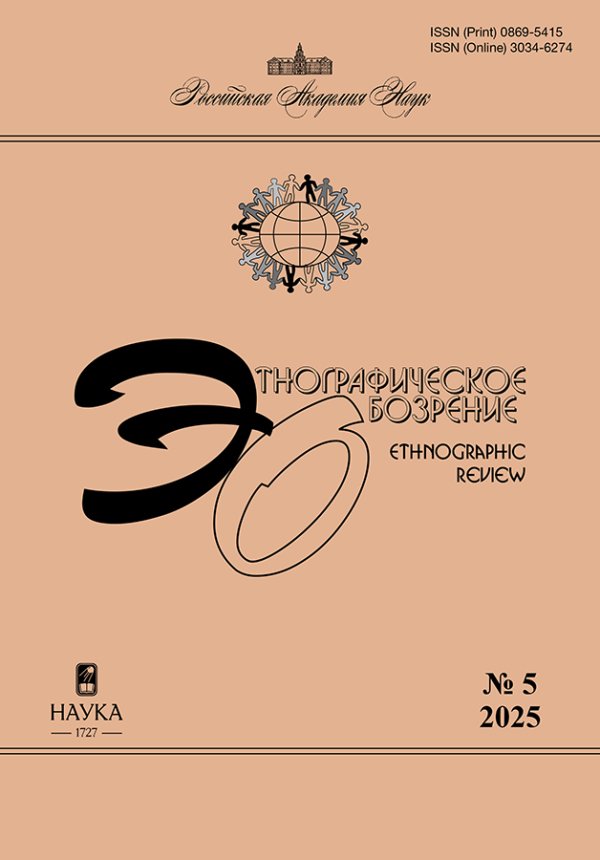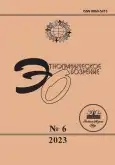Homes as memory boxes: a cognitive approach to understanding attachment to possessions
- Authors: Güngör S.A1
-
Affiliations:
- Research and Consultancy
- Issue: No 6 (2023)
- Pages: 44-60
- Section: Articles
- URL: https://journal-vniispk.ru/0869-5415/article/view/233747
- DOI: https://doi.org/10.31857/S0869541523060040
- EDN: https://elibrary.ru/MNYEVA
- ID: 233747
Cite item
Full Text
Abstract
The article presents a review and analysis of collecting as collecting things of a certain type, discussed in a wide range of this practice, from compulsive accumulation to collecting works of art and museum collections. Furthermore, there are people who store and collect things related to their experiences and intentions. I designate this type of gathering as idiocentric gathering and explore the motives of their keepers. Claiming that collecting is one of the psychic manifestations, this study uses a theoretical approach that encompasses discussions (including in-depth interviews and focus groups) about the relationship of human being and thing, memory and self. A cognitive perspective and ethnosemantic analysis are used to evaluate the collected data. I argue that idiocentric collecting is a way of connecting the past and the future, providing the custodians with a sense of continuity and connectedness in time and space.
Keywords
About the authors
S. A Güngör
Research and Consultancy
Author for correspondence.
Email: sibel.gungor@puhu.com
Стамбул, Турция
References
- Andersson, M., and J. Krebs. 1978. On the Evolution of Hoarding Behaviour. Animal Behaviour 26: 700-711.
- Appadurai, A., ed. 1986. The Social Life of Things: Commodities in Cultural Perspective. Cambridge: Cambridge University Press.
- Baddeley, A.D. 1999. Essentials of Human Memory. New York: Psychology Press Ltd.
- Barthes, R. 1986. Elements of Semiology. New York: Hill & Wang.
- Baudrillard, J. 1994. The System of Collecting. In The Cultures of Collecting, edited by J. Elsner and R. Cardinal, 7-24. London: Reaktion Books.
- Baudrillard, J. 2010. Nesneler Sistemi [The System of Things]. İstanbul: Boğaziçi Üniversitesi Yayınevi.
- Belk, R. 2006. Collectors and Collecting. In Handbook of Material Culture, edited by C. Tilley et al., 534-545. London: Sage.
- Bloch, M.E. 2012. Anthropology and Cognitive Challenge. Cambridge: Cambridge University Press.
- Cardinal, R., and J. Elsner, eds. 1994. The Cultures of Collecting. London: Reaktion Books Ltd.
- Chang, T. 1996. Models of Collecting. Oxford Art Journal 19 (2): 95-97.
- Clifford, J. 1988. The Predicament of Culture Twentieth-Century Ethnography, Literature, and Art. Cambridge (Mass.): Harvard University Press.
- Durkheim, E. 2004. The Cosmological System of Totemism and the Idea of Class. In Anthropological Theory: An Introductory History, edited by R.J. McGee and R.L. Warms, 92-102. New York: McGraw Hill.
- Ewing, K.E. 1990. The Illusion of Wholeness: Culture, Self, and the Experience of Inconsistency. Ethos 18 (3): 251-278.
- Frost, R.O., and G. Steketee. 2010. Stuff Compulsive Hoarding and the Meaning of Things. Boston: Houghton Mifflin Harcourt.
- Frost, R.O., and V. Hristova. 2011. Assessment of Hoarding. Journal of Clinical Psychology 67 (5): 1-11.
- Gibson, M. 2008. Objects of the Dead: Mourning and Memory in Everyday Life. Melbourne: Melbourne University Press.
- Halbwachs, M. 1992. On Collective Memory. London: University of Chicago Press.
- Heidegger, M. 1996. Being and Time. Albany: SUNY Press.
- Hoskins, J. 1998. Biographical Objects: How Things Tell the Stories of People's Lives. New York: Routledge.
- Humprey, N. 1979. The Biological Basis of Collecting. Human Nature 2: 44-47.
- Kandel, E.R. 2006. In Search of Memory the Emergence of a New Science of Mind. New York: W.W. Norton & Co.
- Kirshenblatt-Gimblett, B. 1989. Objects of Memory: Material Culture as Life Review. In Folk Groups and Folklore Genres: A Reader, edited by E. Oring, 329-338. Logan: Utah State University Press.
- Kopytoff, I. 1986. The Cultural Biography of Things: Commoditization as Process. In The Social Life of Things Commodities in Cultural Perspective, edited by A. Appadurai, 64-91. Cambridge: Cambridge University Press.
- Lacewing, M. n.d. Plato's Theory of Forms. https://www.alevelphilosophy.co.uk/handouts_religion/PlatoTheoryForms.pdf (retrieved: 21.03.2012).
- Layton, R. 2006. Structuralism and Semiotics. In Handbook of Material Culture, edited by C. Tilley et al., 29-42. London: Sage.
- Lee, D. 1950. Codifications of Reality: Lineal and Nonlineal. Psychosomatic Medicine 12: 89-97.
- Marx, K. 1992. Capital. Vol. 1, A Critique of Political Economy. London: Penguin.
- Marx, K., and F. Engels. 2004. Feuerbach: Opposition of the Materialist and Idealist Outlook. In Anthropological Theory: An Introductory History, edited by R.J. McGee and R.L. Warms, 67-81. New York: McGraw Hill.
- Melchionne, K. 1996. Collecting: An Unruly Passion: Psychological Perspectives (Review). Philosophy and Literature 20 (2): 524-526.
- Muensterberger, W. 1994. Collecting: An Unruly Passion: Psychological Perspectives. Princeton: Princeton University Press.
- Paine, C. 2013. Religious Objects in Museums: Private Lives and Public Duties. London: Bloomsbury.
- Parkin, D. 1999. Mementoes as Transitional Objects in Human Displacement. Journal of Material Culture 4 (3): 303-320.
- Pearce, S.M. 1995. On Collecting: An Investigation into Collecting. Abingdon: Routledge.
- Quinn, N. 2006. The Self. Anthropological Theory 6 (3): 362-384.
- Redding, P. 1997. Georg Wilhelm Friedrich Hegel. In Stanford Encyclopedia of Philosophy, edited by E.N. Zalta. https://plato.stanford.edu/entries/hegel
- Spiro, M. 1993. Is the Western Conception of the Self "Peculiar" within the Context of the World Cultures? Ethos 21 (2): 107-153.
- Stewart, S. 1993. On Longing: Narratives of the Miniature, the Gigantic, the Souvenir, the Collection. London: Duke University Press.
- Sutton, J. 2017. Memory. In The Stanford Encyclopedia of Philosophy, edited by E.N. Zalta. https://plato.stanford.edu/entries/memory
- Thomas, J. 2006. Phenomenology and Material Culture. In Handbook of Material Culture, edited by C. Tilley et al., 43-59. London: Sage.
- Tilley, C. 2006. Theoretical Perspectives. In Handbook of Material Culture, edited by C. Tilley et al., 7-11. London: Sage.
- Wheeler, M. 2011. Martin Heidegger. In The Stanford Encyclopedia of Philosophy, edited by E.N. Zalta. https://plato.stanford.edu/entries/heidegger
Supplementary files










